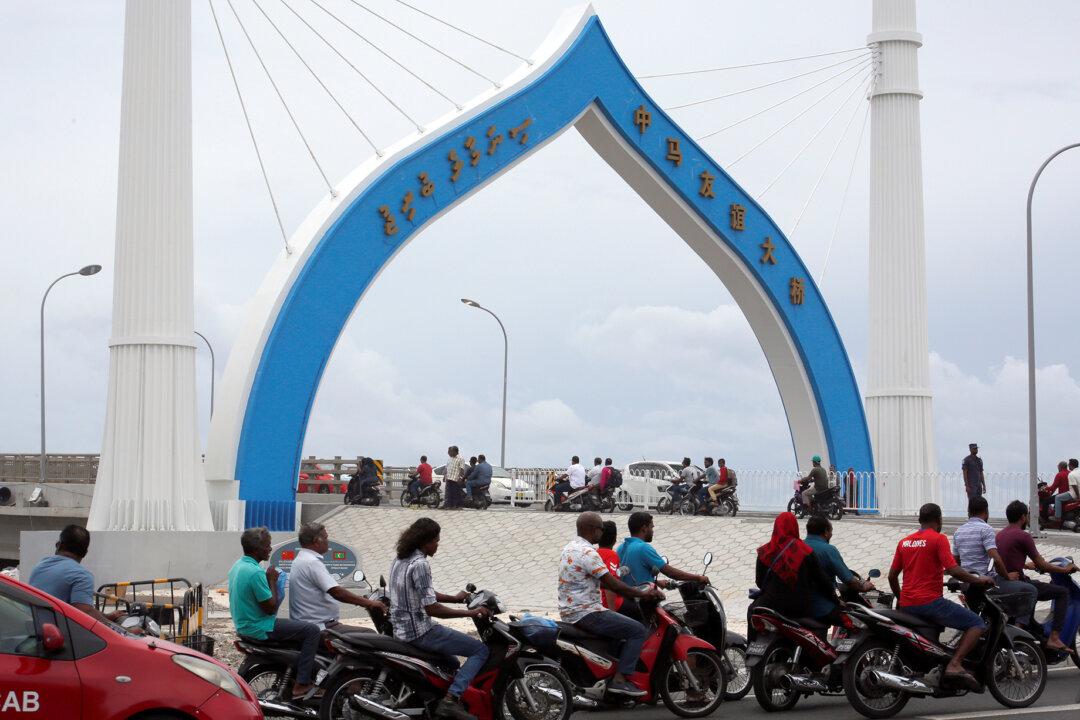MALE—One week after taking power, the new government of the Maldives says it has no idea how much it owes China, which has led a construction spree in the tiny Indian Ocean nation, but fears the debts run up in the past five years could be unsustainable.
Mohamed Nasheed, a former president now serving as advisor to new President Mohamed Ibrahim Solih, said that the Chinese ambassador to the Maldives, Zhang Lizhong, handed the government an invoice for $3.2 billion—equivalent to around $8,000 for every inhabitant of the archipelago. China denies that, however, and says the number is closer to $1.5 billion.





